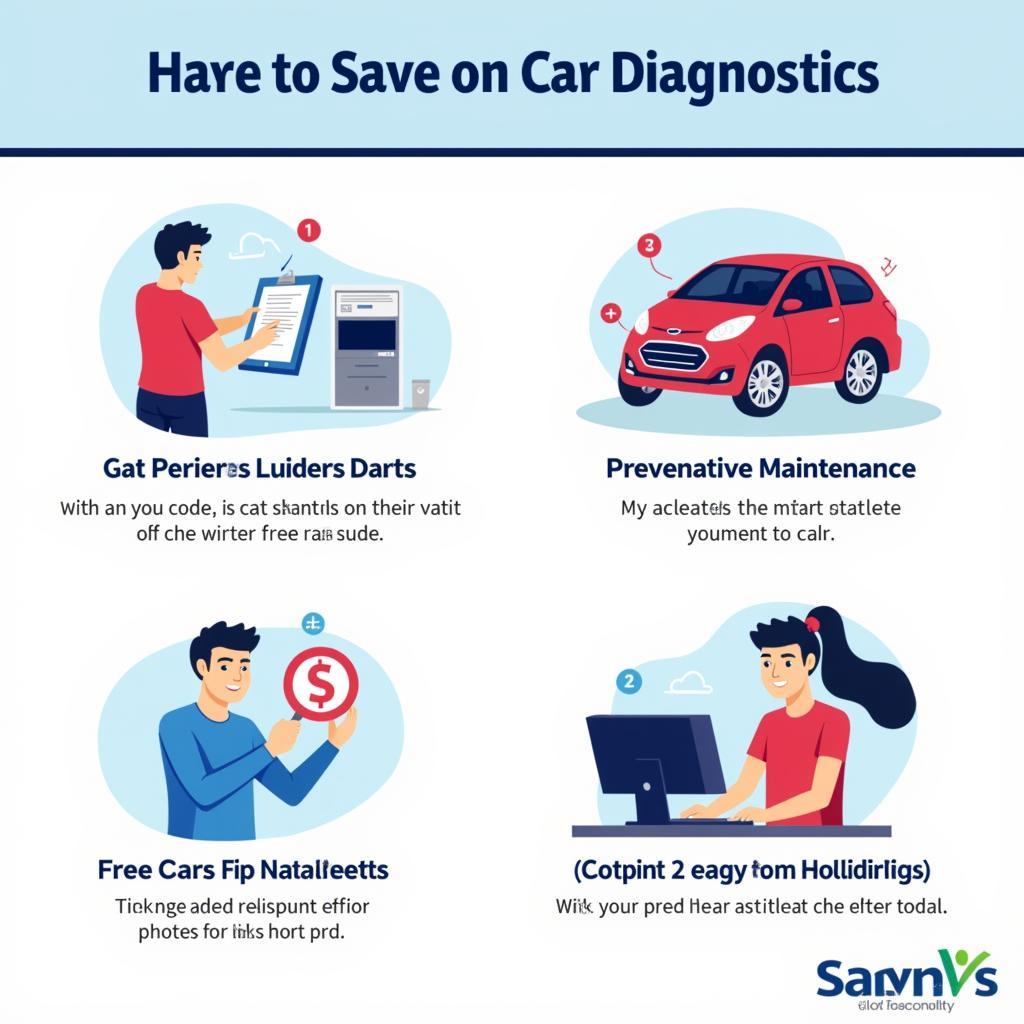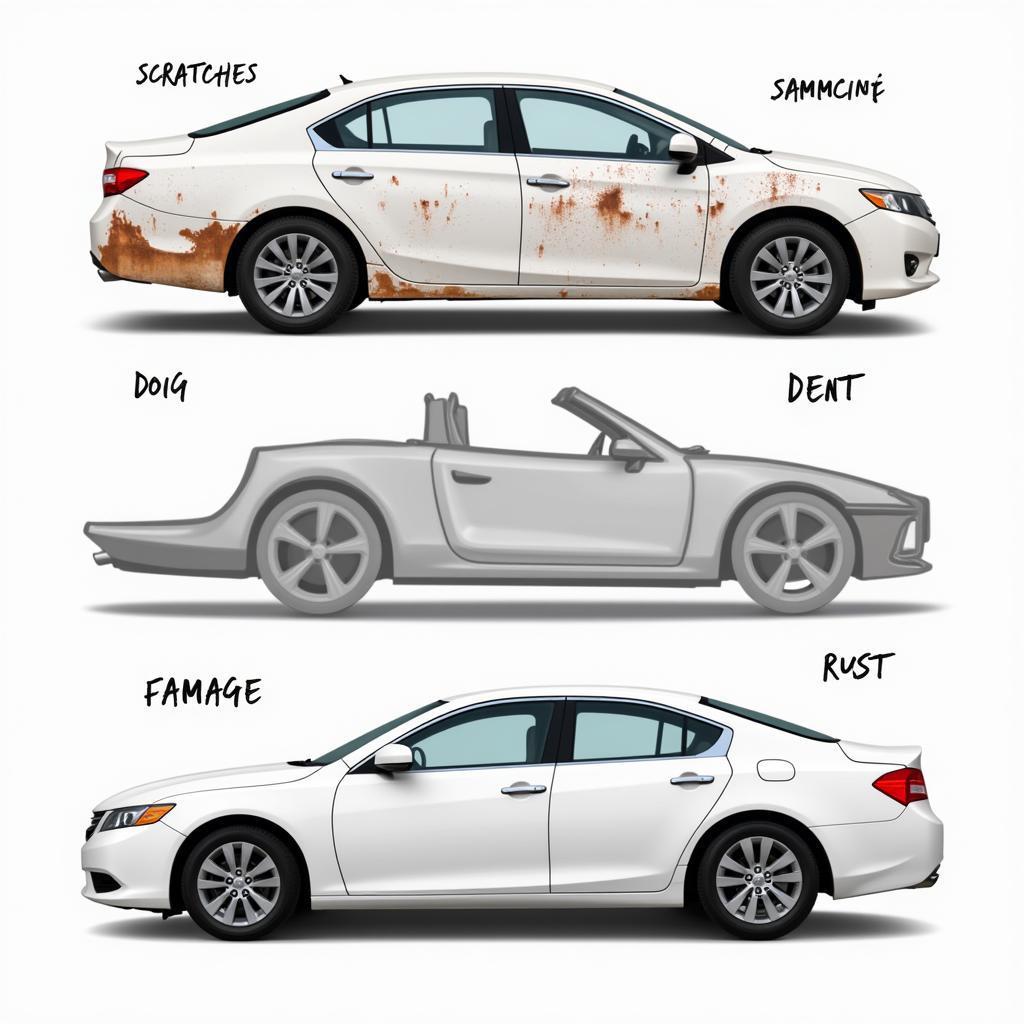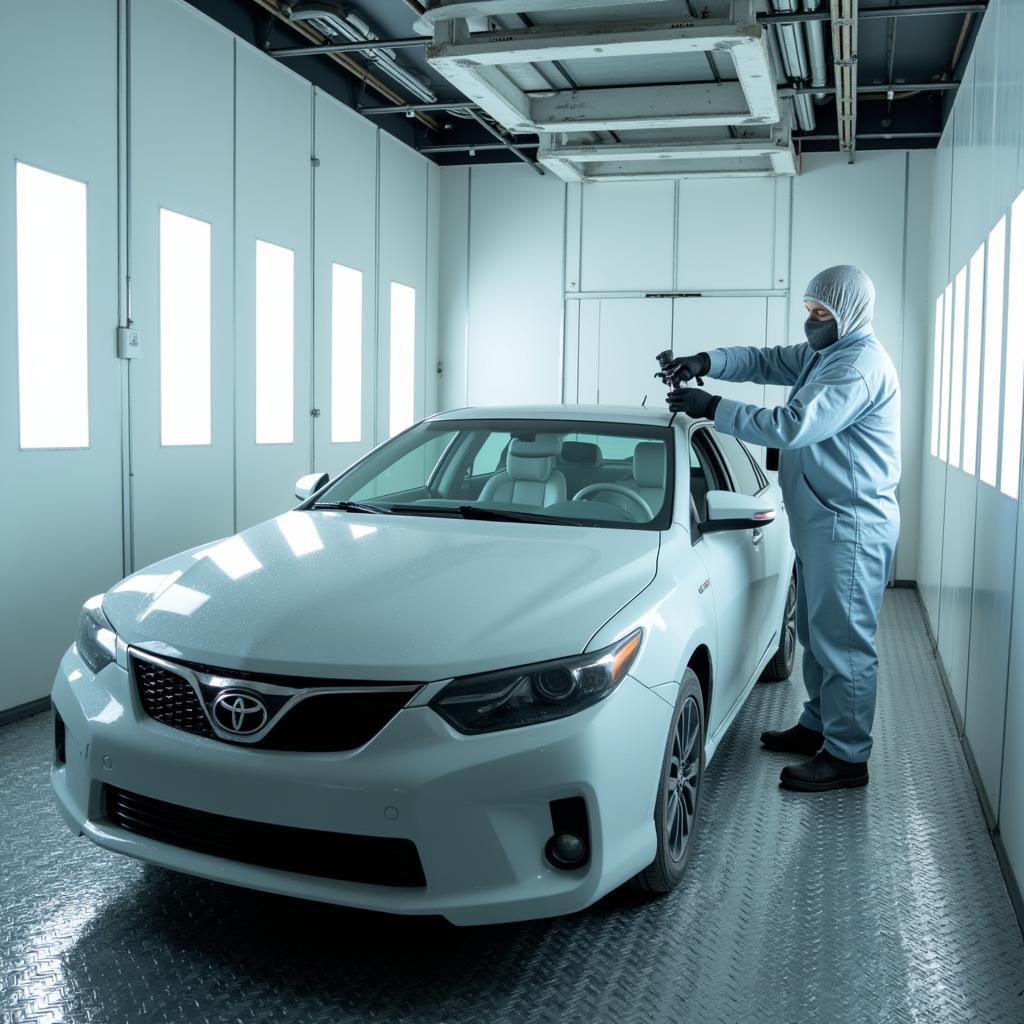
Saving Money on Car Diagnostics
Getting a “check engine” light can be stressful. Understanding the Average Cost Of Car Diagnostic testing can help you prepare and avoid unexpected expenses. This guide will explore the various factors affecting diagnostic costs, different diagnostic methods, and tips for saving money.
Diagnostic testing is crucial for identifying the root cause of car problems. A proper diagnosis can save you time and money in the long run by preventing unnecessary repairs. Whether you’re experiencing performance issues, unusual noises, or warning lights, a diagnostic test is the first step towards getting your car back in shape. After the initial diagnostic, you’ll likely have a conversation with your mechanic to discuss options. They might ask, “Do you understand what this particular diagnostic code means?” Don’t worry if you don’t. This guide is here to empower you.
What Factors Influence Car Diagnostic Costs?
Several factors contribute to the overall cost of a car diagnostic test. Understanding these can help you make informed decisions.
- Type of Diagnostic Test: A simple code scan can be relatively inexpensive, while more advanced tests using specialized equipment, such as an oscilloscope or pressure transducer, can be significantly more costly.
- Vehicle Make and Model: The complexity of a vehicle’s systems can influence the diagnostic time and the specialized tools required. European cars, for instance, often require specific diagnostic software.
- Location: Labor rates vary depending on your geographical location and the type of repair shop (independent vs. dealership). Dealerships typically charge higher labor rates for diagnostics.
- Problem Complexity: Diagnosing intermittent problems or issues with complex systems can take longer and therefore cost more.
After the initial code scan, further investigation might be required. For example, you might need a delphi car diagnostic if your vehicle utilizes Delphi systems.
Different Types of Car Diagnostic Tests
Car diagnostic tests range from simple code retrieval to in-depth system analysis.
- OBD-II Code Scan: This is the most basic type and involves retrieving diagnostic trouble codes (DTCs) stored in the vehicle’s computer. This type of scan is offered by most auto parts stores for free. It can be a good starting point, but it doesn’t always pinpoint the exact problem.
- Visual Inspection: A trained mechanic will visually inspect various components for signs of wear, damage, or malfunction. This can help identify obvious issues like leaks or broken parts.
- Mechanical Diagnostic Tests: These tests involve checking specific components, like compression testing or fuel pressure analysis.
- Electrical Diagnostic Tests: These can include tests for voltage drops, shorts, and open circuits. They often require specialized equipment.
If you’re interested in performing your own diagnostics, consider researching the best car diagnostic tool available.
Average Cost Breakdown
While prices vary, a basic OBD-II code scan can cost anywhere from $0 (at some auto parts stores) to $50-$100 at a repair shop. More comprehensive diagnostic tests, involving specialized equipment and labor, can range from $100 to $400 or more. The average cost of car diagnostic testing tends to be around $150.
How to Save Money on Car Diagnostics
- Free Code Scans: Take advantage of free OBD-II code scans offered by auto parts stores. This can give you a preliminary idea of the issue.
- Preventive Maintenance: Regular maintenance can prevent many problems from developing in the first place, reducing the need for diagnostic tests.
- Research and Compare: Get quotes from multiple repair shops before committing to a diagnostic test.
For instance, if you suspect timing issues, you might want to explore car diagnostic software for timings. This could help you pinpoint the problem before taking your car to a mechanic.
 Saving Money on Car Diagnostics
Saving Money on Car Diagnostics
Conclusion
Knowing the average cost of car diagnostic testing can help you budget for car repairs. By understanding the factors that influence cost and the different diagnostic methods available, you can make informed decisions and avoid unnecessary expenses. Regular maintenance and proactive diagnostics can save you money in the long run and keep your car running smoothly. Don’t hesitate to seek a professional diagnosis when needed.
FAQs
- What does a car diagnostic test tell you? It identifies the source of car troubles, from engine misfires to transmission issues.
- How long does a car diagnostic test take? A simple scan can take minutes, while complex diagnostics can take several hours.
- Is a car diagnostic test worth it? Absolutely. Accurate diagnosis prevents unnecessary repairs and saves money long-term.
- Can I do a car diagnostic test myself? Basic OBD-II scans are possible with affordable scanners, but complex issues require professional expertise.
- How often should I get a car diagnostic test? If you experience any unusual symptoms or warning lights, or as part of scheduled maintenance.
- What is a diagnostic trouble code (DTC)? A code stored in your car’s computer indicating a specific malfunction.
- What if the diagnostic test doesn’t find anything? Intermittent issues can be tricky. Further investigation or specialized equipment might be necessary.
Want a compact diagnostic solution? Check out our article on the car diagnostic machine small. Or, if you’re looking for something more specific, we also have information on the f car diagnostic machine.
Need assistance? Contact us via WhatsApp: +1(641)206-8880, Email: [email protected]. We have a 24/7 customer support team ready to help.


